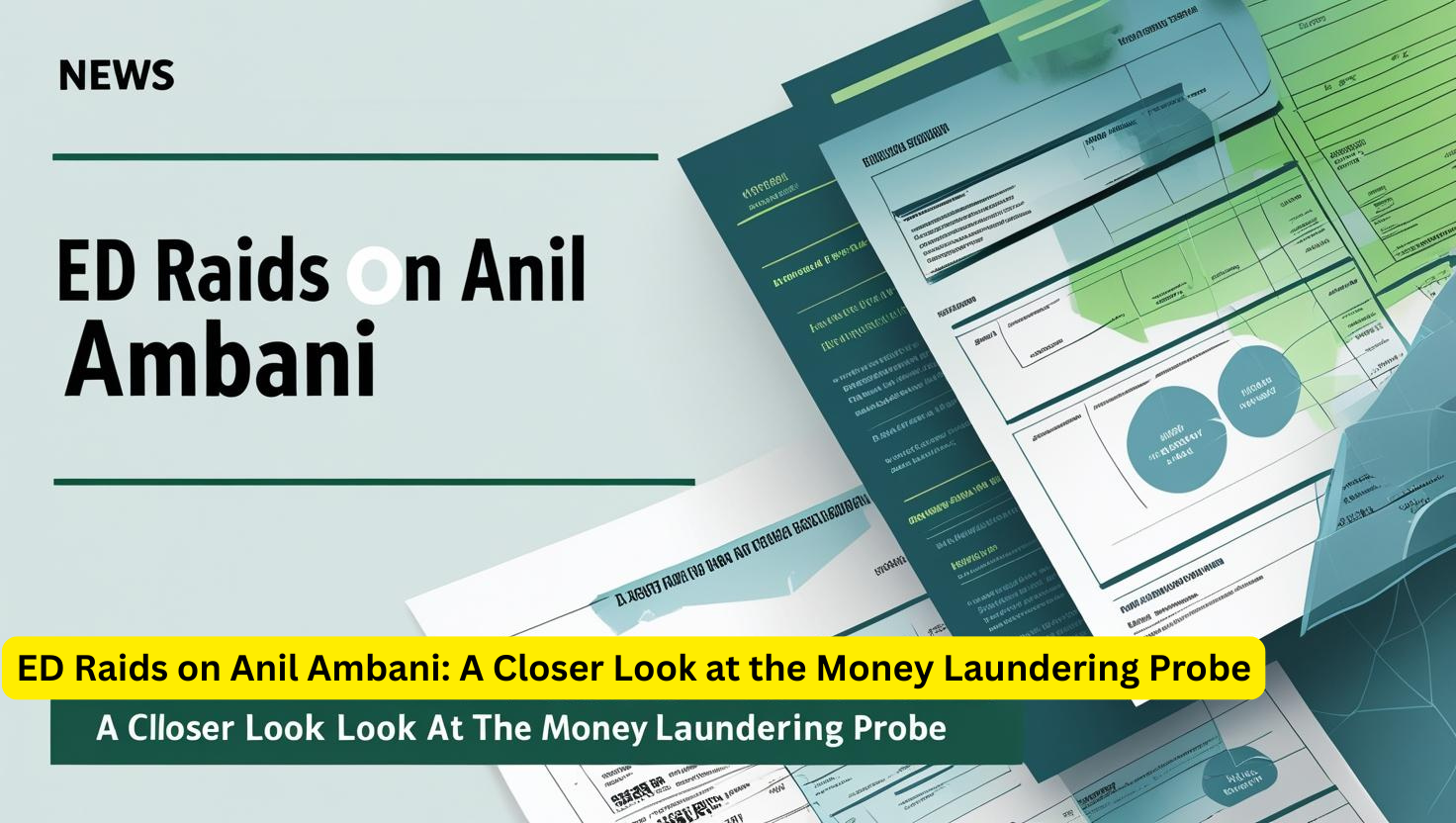New Delhi, India – In a significant development, the Enforcement Directorate (ED) on Thursday, July 24, 2025, launched an extensive search operation as part of its ongoing money laundering investigation linked to the Reliance Anil Ambani Group (RAAGA) companies. The raids, spanning over 35 premises across Mumbai and Delhi, targeted more than 50 companies and over 25 individuals connected to the case, signaling a major escalation in the probe.
The investigation primarily centers on alleged irregularities involving loans worth approximately ₹3,000 crore from Yes Bank, disbursed to RAAGA companies between 2017 and 2019. This probe by the ED is based on First Information Reports (FIRs) previously registered by the Central Bureau of Investigation (CBI) in the broader Yes Bank case, which has seen its former promoter, Rana Kapoor, under scrutiny.
Sources close to the ED indicate that preliminary findings suggest a “well-planned and thought-out scheme to divert and siphon off public money by cheating banks, shareholders, investors, and other public institutions.” A crucial aspect under investigation is the suspected nexus between the loan disbursements and alleged bribe payments. It has been revealed that just before the loans were granted to RAAGA companies, the promoters of Yes Bank allegedly received money in their affiliated entities, raising suspicions of a ‘quid pro quo’ arrangement.
The ED‘s investigation has unearthed several “gross violations” in Yes Bank’s loan approval processes concerning RAAGA companies. These include allegations of backdated Credit Approval Memorandums (CAMs), investments proposed without proper due diligence or credit analysis, and violations of the bank’s own credit policies. Furthermore, these loans were allegedly diverted to a multitude of group and shell companies, often in contravention of loan terms.
Red flags identified by investigators include:
- Loans sanctioned to entities with weak financial health.
- Lack of proper documentation and due diligence for loans.
- Borrowing entities sharing common addresses and directors.
- Instances of “loan evergreening,” where fresh loans were issued to repay existing ones to avoid classifying them as non-performing assets.
- Allegations of loans being disbursed on the same day as the application, or even prior to formal approvals.
The ED’s current operation is fortified by inputs from various other agencies and institutions, including the National Housing Bank, the Securities and Exchange Board of India (SEBI), the National Financial Reporting Authority (NFRA), and the Bank of Baroda. Notably, SEBI is also reported to have shared its findings regarding Reliance Home Finance Ltd. (RHFL), a Reliance Anil Ambani Group company, which saw a dramatic increase in its corporate loans from ₹3,742.60 crore in FY 2017-18 to ₹8,670.80 crore in FY 2018-19, a period now under intense scrutiny.
This action by the ED comes weeks after the State Bank of India (SBI) had independently classified the loan account of Reliance Communications (RCom), another group company of Anil Ambani, as “fraud,” and indicated its intention to lodge a complaint with the CBI. While Anil Ambani’s personal residence was not part of the current search operation, the sheer scale of the raids underscores the gravity of the allegations.
Reliance Power and Reliance Infrastructure, two entities within the broader Anil Ambani Group, issued clarifications stating that the ED’s actions have “absolutely no impact on the business operations, financial performance, shareholders, employees, or any other stakeholders” of their respective companies. They clarified that the reports largely pertain to allegations concerning transactions of Reliance Communications Limited (RCOM) or Reliance Home Finance Limited (RHFL), which they described as being “over 10 years old” and distinct from their current operations.
The investigation is ongoing, and the legal proceedings surrounding these allegations are expected to unfold further as the ED continues to gather evidence under the Prevention of Money Laundering Act (PMLA). The outcome of this high-profile probe will have significant implications for the individuals and entities involved, as well as for corporate governance and banking norms in India.
